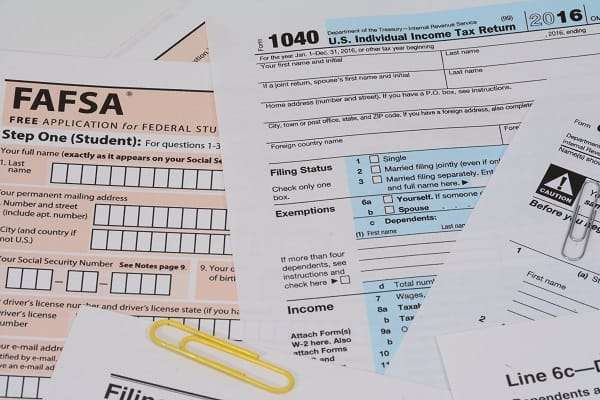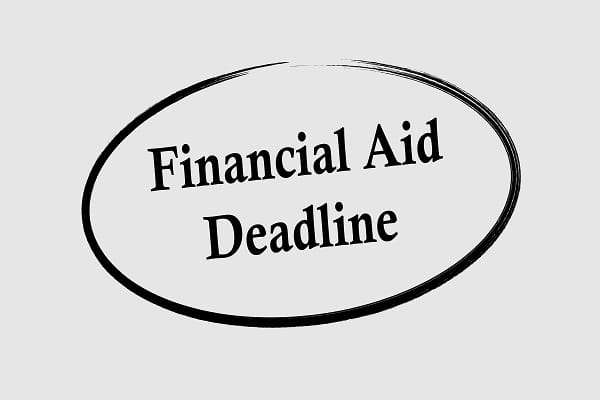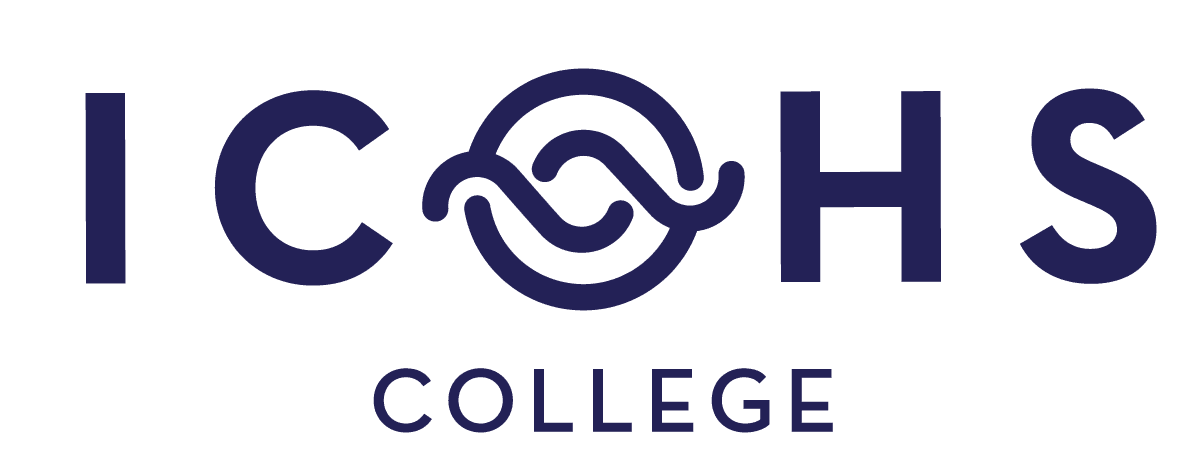The Free Application For Federal Student Aid (FAFSA) is key in securing loans, scholarship awards, and federal financial aid for your academic pursuits. The organization starts accepting applications on October 1st, with a June 30th deadline. State deadlines may differ depending on your higher education facility.
It is extremely important to submit your application on time. Failure to do so can prevent you from receiving any federal aid at all. Fortunately, a few protections in place can help you secure some assistance if you miss the FAFSA deadline. Read on below for advice on how to remedy the situation.
[toc]What is the Free Application for Federal Student Aid (FAFSA)?

The FAFSA is an application form that collects data from prospective students to help them secure student loans for the academic year ahead.
FAFSA assists educational institutions by providing data for student loan calculators. The school’s financial aid office can use this information to determine whether you are eligible for federal loans and how much you are entitled to.
How to Handle a Missed FAFSA Deadline
The FAFSA deadlines should be respected. Failure to submit your FAFSA application by the 30th of June may mean you will miss out on federal financial aid for the entirety of your first school year.
The worst-case scenario of a missed FAFSA deadline would be waiting until the following academic year to attain a student loan. Therefore, it is important to submit your FAFSA form alongside your earlier deadlines and avoid waiting until it is overdue.
It is possible to avoid the repercussions of a missed federal FAFSA deadline, however. Read on to find out alternative ways of attaining a loan.
Submit the FAFSA as Soon as Possible
Don’t delay submitting your FAFSA form. As soon as FAFSA starts accepting applications, you should consider it one of your priority deadlines. There is only so much federal student aid to go around, meaning those who submit after the deadline are likely to miss out.
Even if the FAFSA deadline has passed, you should still aim to apply as soon as possible. Financial awards through FAFSA works on a first-come-first-served basis. Your application will be considered secondary to the applicants who submitted on time, but there may still be a chance of attaining funding with a late application.
Reach Out to the Financial Aid Department at your School
You should contact the school’s financial aid department as soon as you become aware of your overdue FAFSA application. Your school may be able to instruct you in alternative methods of submitting your FAFSA information. Alternatively, your school may have extra financial awards to hand out.
You can inquire about emergency loans and external scholarships and grants at your school’s finance department.
Contact Your State Education Agency
You can try reaching out to the State Education Agency to explain your situation. Like your school’s financial aid department, your State Education Agency may be able to guide you through alternative means of attaining federal student loans.
Each state has a different State Education Agency body that residents and students can contact. For example, California has the Student Aid Commission. In contrast, Washington has the State Department of Education. Use this resource to find the appropriate State Education Agency for the higher education course you have applied for.
Ask About Emergency Loan Options

You can inquire with your school to see if they offer any emergency loan options. Most educational facilities provide emergency loans for those who find themselves in need of financial assistance. It is often reserved for those experiencing issues at home or prolonged unemployment but can also be attained by those who failed to meet the FAFSA deadline.
You will be able to ask about emergency loans at your university or college’s financial aid office. Be sure to understand the terms and conditions of the emergency loan thoroughly before making major financial decisions. Although it’s unlikely, there may be harsh terms imposed for paying that money back, which could land you in worse financial trouble in the long run.
Apply for External Scholarships or Grants
You can apply for external scholarships and grants to decrease the financial burden of your college or university course. Use such scholarship search sites as Scholly or Scholarships.com to widen your search options. You may be able to find a scholarship or grant perfect for the course you have enrolled in.
Scholarships and grants work differently from loans in that you are not required to pay them back. They are a great way of funding your education as they tend to cover the entire duration of your college career. Put concerns over college expenses and strict deadlines behind you!
You will likely need a high G.P.A. of 3.0 and above to attain an external scholarship. Apply for as many scholarships that fit your criteria to increase your chances of achieving one.
Consider Taking Out a Private Loan
FAFSA deadlines only apply to federal government student loans; they do not apply to private student loans. Personal loans are a good option if you have missed the FAFSA deadline and don’t mind looking outside of federal and state aid options for funding.
Private loans are known to be riskier than federal loans in that the loaner is less protected. Those who take out a personal loan may also have to oblige to strict repayment requirements.
Applying for a private loan is also a lot more complicated than filling out a FAFSA form, and you will most likely need to get a cosigner to fill out certain aspects of the application.
Think About Applying for Federal Aid Next Year
If you miss the deadline this year, don’t make the same mistake again next academic year. Unlike scholarships, you have to reapply for FAFSA every year you are studying. Make FAFSA a top priority and treat it the same way you would with other college deadlines.
As you’ve likely learned the hard way, you need to be fast when it comes to submitting your FAFSA application to qualify for a loan. As soon as FAFSA opens on the 30th of June next year, apply immediately, and strive to do the same in all subsequent years of study.
What You Need to Complete the FAFSA
The federal student aid FAFSA form is easy to complete and can be filled out as a PDF, on the FAFSA website, or on paper. You will require the following:
Personal Documents
- Social Security Number or Alien Registration Number
- Tax records – Federal income tax returns and records of untaxed income
- Bank statements
- FSA ID
Parental Information
- Parent’s FSA ID
- Tax information
- Bank statements and investments
Conclusion

The sooner you meet the FAFSA federal deadline, the better. As soon as June 30th hits, you should have already completed the year’s FAFSA form. However, going to college and university for the first time can be stressful, and essential tasks sometimes get cast to the wayside.
If you do find that you’ve missed the deadline, you should still proceed and submit your application. You may find that there is enough student aid left over to meet the necessities of your application. You could also try contacting your school’s finance department and State Education Agency.
If all of the above fails, you can request an emergency loan, apply for external scholarships or grants, or consider taking out a private loan.
If you’re in the market for affordable career training, we encourage you to explore the certification programs from ICOHS College. Our training helps prepare those enrolled for successful careers in the computer field. Through a combination of lab and classroom training, students will gain the skills needed to achieve the following certifications:
Scholarships and title IV funding are available for our IT programs and additional course offerings. Give us a call at (858) 581-9460 or email us to learn more about what financial assistance programs we support. Financial aid is available to those who qualify.
We also offer career counseling services to all students as well as lifetime job placement assistance. Our staff works hard to help graduates land jobs they’re passionate about. ICOHS College is accredited by the ACCET (Accrediting Council for Continuing Education, accet.org). To learn more about ICOHS College accreditations and licenses, visit our accreditation page.
FAQ
What happens if you miss the FAFSA deadline?
If you miss the FAFSA form deadline, you risk missing out on finance provisions for an entire years’ worth of education.
Can you still turn in FAFSA after the deadline?
Yes, you can still submit a FAFSA application after the federal deadline. It is encouraged, as you may still attain financial support, although opportunities are narrowed.
Can I apply for financial aid after acceptance?
You can apply for financial aid after acceptance. It makes more sense to do it this way, as you cannot receive your funds until you’ve been accepted.
Is FAFSA first come, first serve?
Yes, FAFSA is first come, first serve. This means that the earlier you get the application submitted, the better your chances of attaining sufficient financial provisions.










